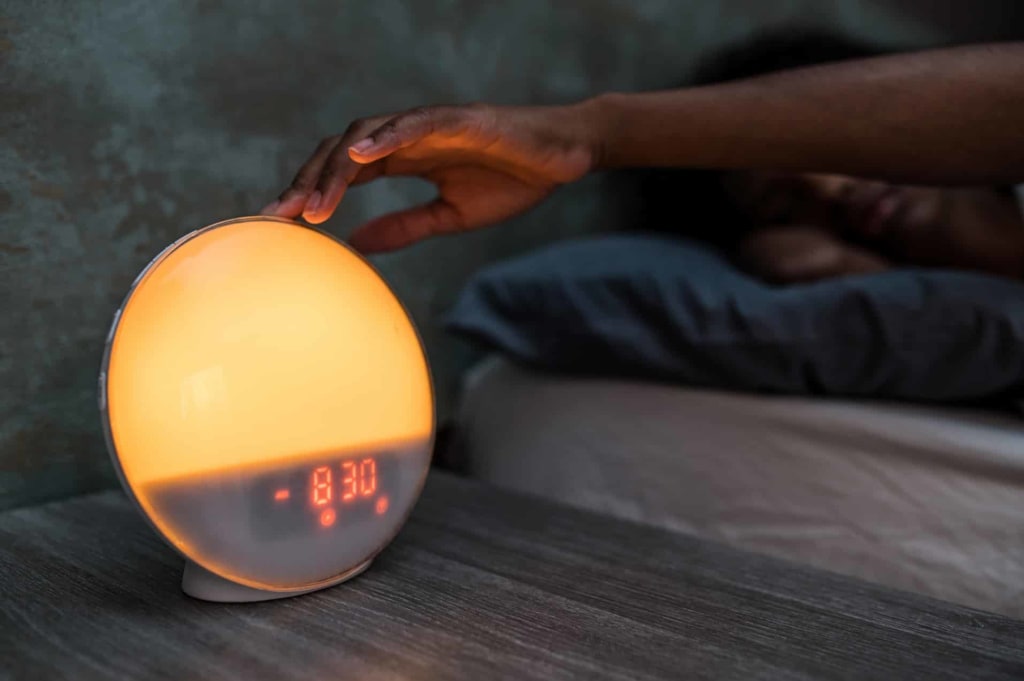Facts About Sleep:
Understanding Your Sleep Needs, Habits, and Myths

Getting a good night's sleep is essential for maintaining our health and well-being. But what happens when you follow all the recommended guidelines, yet you still wake up feeling tired and groggy? Is it possible that the eight-hour sleep rule is just a myth? Well, the answer is yes, it could be due to a disrupted circadian rhythm.
The circadian rhythm is a natural internal process that regulates our sleep-wake cycle. It is like the project manager of our bodies that helps synchronize our bodies with the environment and the amount of light we're exposed to during the day. This rhythm plays a crucial role in regulating sleep, feeding needs, and hormone production in our bodies. It's not just limited to humans, but it is found in most living beings, including animals, plants, and even some bacteria.
During the day, our bodies produce hormones like cortisol, which help us stay alert and awake. On the other hand, at night, the body produces melatonin, which makes us feel tired and promotes sleep. The circadian rhythm helps to let our body know when it's appropriate to generate these hormones so that it can function properly.
However, when our circadian rhythm is disrupted, like when we have jet lag or work irregular shifts at our jobs, our sleep patterns may become disruptive as well. This disruption can make it difficult to fall asleep, cause us to wake up frequently throughout the night, and make us feel tired and groggy during the day, even if we've slept a reasonable number of hours during the night.
To maintain a healthy sleep pattern, it is essential to have a consistent sleep schedule. This means waking up and going to bed at the same time every day, even on weekends. It may also help if we expose ourselves to natural light during the day and avoid looking at screens like our phone or tablet before bedtime. Screens emit blue light, which can disrupt our body's production of melatonin and make it harder to fall asleep.
In conclusion, the eight-hour sleep rule is not a myth, but it's not a one-size-fits-all solution. Some of us can indeed be bad at snoozing due to a disrupted circadian rhythm. By following a consistent sleep schedule and limiting screen time before bed, we can improve the quality of our sleep and overall well-being. So, the next time you're struggling to fall asleep or feeling groggy during the day, take a look at your sleep routine and make adjustments to improve it.
Getting enough sleep is important, but how much sleep do we actually need? The answer is kind of complex. For starters, it has a lot to do with our age. When we're born, we need the most amount of sleep - somewhere around 14 to 17 hours of snooze time. As we grow older, by the time we're toddlers, we need 11 to 14 hours each day. Most teenagers need 8 to 10 hours of sleep, and by the time we're adults, we should be just fine with as little as seven hours. Apart from age, genetics also has a lot to do with our sleep needs. Some people are naturally more prone to needing more or less sleep. Additionally, people who lead more active lifestyles may need more sleep to recover and regenerate their bodies. High levels of stress can affect our sleep and cause people to need more sleep to feel rested. You might have also noticed that you need more sleep when you've caught a cold or when you've eaten too much.
But do all of us need to fall asleep at the same hour to feel rested? You've surely heard of some people being night owls while others are considered larks. Night owls tend to be more energetic and productive at night, while larks are more productive in the morning. Both types of people have their own unique habits and preferences, and there's no right or wrong way to be a night owl or a lark. There are lots of questionnaires you can do online to see which category you fit in best, or you can test it for yourself at home. Try going to bed at different hours for a specific period of time and see which option fits best for your energy levels throughout the day.
How about our sleeping position? Can that also influence how well-rested we feel when waking up? Absolutely. And the most effective way to figure out what works best for you is to note everything down in a sleep diary. You'll need to record your sleep habits for at least a week or two to have the best results. Just make sure to switch between falling asleep on your back, your side, or your stomach each night. You don't have to change your favorite sleeping position if you're not having any issues as long as you wake up feeling well-rested.
However, if you do experience problems, here are a couple of things you can try. For example, if you have neck pain, you'll have better rest while sleeping on your back or your side. You can also try using a thicker pillow when sleeping on your side and a thinner one when resting on your back.
The explanation of how much sleep we need may seem simple, but it's not always easy to achieve. Many factors can affect the quality of our sleep, such as our circadian rhythm, stress levels, and sleeping position. Our circadian rhythm is a natural internal process that plays a crucial role in regulating sleep, feeding needs, and even hormone production. It helps to synchronize our bodies with the environment and the amount of light we're exposed to during the day. When our circadian rhythm is messed up, like when we have jet lag or work irregular shifts at our jobs, our sleep patterns may become disruptive as well. What happens next? We can find it difficult to fall asleep or we end up waking up frequently throughout the night. Or as you might have experienced already, we end up feeling tired and groggy during the day, even if we've slept a reasonable number of hours during the night.
Sleep is a fundamental aspect of our lives, and we all have a unique relationship with it. While some people need more sleep than others, the amount of sleep we require is largely dependent on our age, genetics, and lifestyle. For instance, newborns require the most sleep, somewhere around 14 to 17 hours of snooze time, while most teenagers need 8 to 10 hours of sleep. By the time we reach adulthood, we should be just fine with as little as seven hours of sleep, though genetics and an active lifestyle can play a significant role in determining how much sleep we need.
When it comes to sleep, our sleeping positions can also influence how well-rested we feel when waking up. If your sinuses are keeping you up at night, you can try sleeping on your back with your head a bit more elevated, and a thicker pillow should do the trick too. On the other hand, if you have hip or back pain, sleeping on your back with a pillow or a rolled-up towel underneath your knees can reduce the pressure on your spine and help relieve the pain.
While it might be tempting to hit the snooze button and get a few extra minutes of sleep in the morning, it's not always the best idea. Hitting the snooze button can make us feel groggier in the long run, even though technically, we're sleeping more. Those 10-minute intervals of sleep aren't a good type of sleep as there simply isn't enough time for us to properly fall back into a deep sleep. Oversleeping can also make us even sleepier during the daytime, affect our metabolism, and energy levels too. Breaking up with the snooze button can be overwhelming, but setting a realistic alarm and finding a sleeping schedule that works for you can make a significant difference. It's important to stick to the sleeping schedule and get out of bed as soon as you wake up. The change in posture will trigger the right chemicals in your body that remove your need to go back to sleep. If nothing seems to work, you can even move your alarm clock across the room, so you'll be less likely to hit the snooze button.
While not having any of the common sleep problems is good, it doesn't necessarily mean your sleep patterns are great. Some people seem to think that just because they can fall asleep anywhere, they're good sleepers, but that's far from the truth. On average, it should take us 5 to 15 minutes to fall asleep after we go to bed. If it takes longer for an extended amount of time, it may be a sign of insomnia. On the other hand, if falling asleep takes less than five minutes, you may be sleep deprived, and it can happen for a lot of different reasons like stress or even diet changes. It can also mean the sleep you're getting, even if it's the recommended seven to nine hours a night, is fragmented or disturbed.
In conclusion, sleep is essential for our physical and mental health, and the amount of sleep we require varies from person to person. Our sleeping positions, alarm clocks, and sleeping schedules can also influence how well-rested we feel when waking up. While hitting the snooze button might seem like a good idea, it's not always the best course of action. Finally, it's essential to pay attention to our sleep patterns and seek professional help if we experience any sleep problems. With the right approach, we can all get the sleep we need to lead a healthy, productive life.
About the Creator
Robby Rahadi Putra
Apart from my professional work as auditor, I am also an avid writer and reader. I enjoys writing novels and other creative content in my free time, as well as delving into books to expand my knowledge and understanding of the world.
Enjoyed the story? Support the Creator.
Subscribe for free to receive all their stories in your feed. You could also pledge your support or give them a one-off tip, letting them know you appreciate their work.






Comments
There are no comments for this story
Be the first to respond and start the conversation.